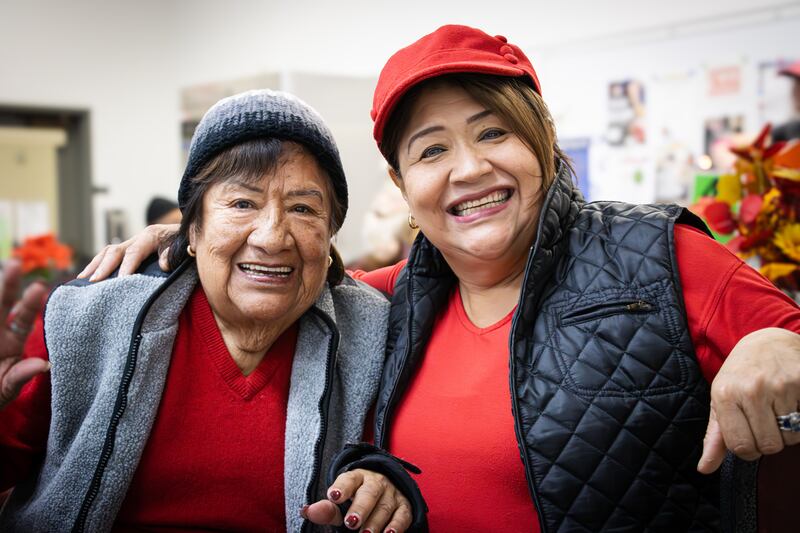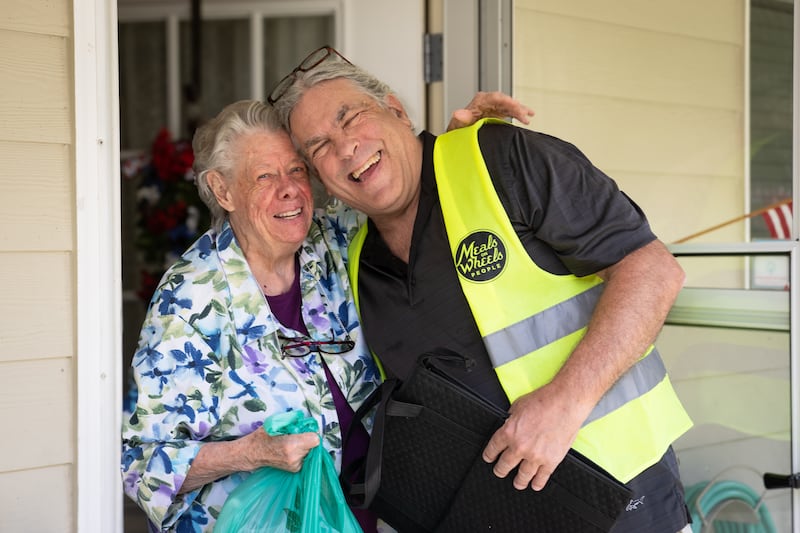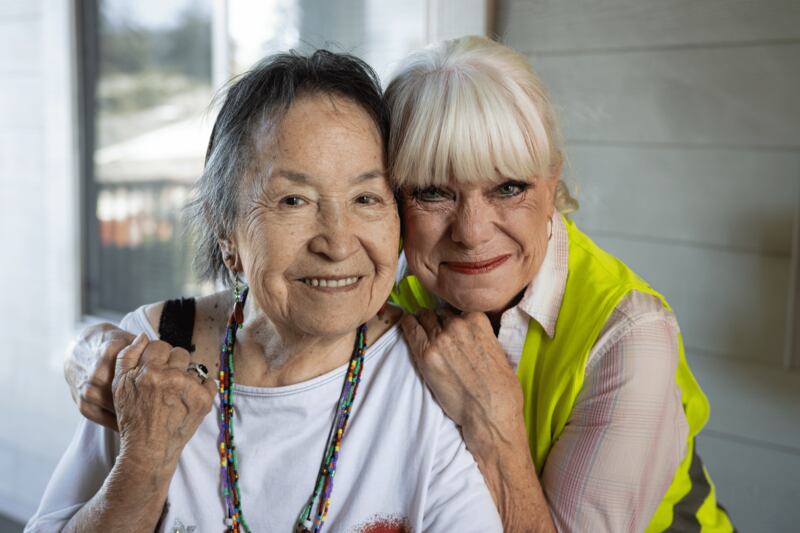This story is published in cooperation with Willamette Week and Meals on Wheels People.
In 1970, three women—Jean Wade, Martha Shull, and Cay Kreiger—recognized that many older adults in their community were struggling with hunger and isolation. Determined to make a difference, they began serving lunches to seniors and delivering meals to homebound older adults. What started as 14 meals delivered on paper plates has grown into Meals on Wheels People—a lifeline for thousands of older adults that continues to nourish bodies and hearts over 50 years later.
Today, Meals on Wheels People continues to help seniors maintain their independence. By providing nutritious meals and fostering meaningful connections, the organization remains steadfast in its mission to end senior hunger and isolation—ensuring that no one in our community feels forgotten.
 Opens in new window
Opens in new windowHow It Works
Each week, the Meals on Wheels People team produces over 25,000 meals in its 14,000-square-foot commercial kitchen in Multnomah Village. These meals are then delivered to dining centers throughout Multnomah, Washington, and Clark counties, where they are then served at lunch to older adults on-site or brought directly to homebound older adults by Meals on Wheels People volunteers and staff.
This year alone, Meals on Wheels People has served over 1 million meals and provide social support to nearly 9,000 older adults, helping them stay healthy, independent, and engaged in their communities.
Ageism and Poverty Have Created a Crisis
Over half of the older adults who Meals on Wheels People serve live alone, and 58% live on less than $1,600 per month, forcing many to choose between food, medicine, and other essentials. Nearly half of the nonprofit’s home-delivery participants also report mobility challenges, making it even harder to access the care and support they need.
“Rent is so high,” says meal recipient Edna. “I can’t afford to buy a lot. It means a lot to get those three meals a week.”
 Opens in new window
Opens in new windowIt’s Not Just About Meals
Food is, of course, an essential need. But sometimes the real hunger is for social connection. Each meal delivery is more than just nourishment—it’s a moment of connection that shows someone cares. For seniors who feel isolated, these visits can be life-changing.
“It makes me feel good that somebody cares — that I’m not one of those statistics that nobody cares about,” says Vern, a meal recipient and participant in Meals on Wheels People’s Friendly Chats program. “The people from Meals on Wheels People honestly care about me. And that’s important to all of us—that somebody cares about all of us.”
Friendly Chats pairs volunteers with homebound older adults for regular phone calls, helping to reduce loneliness, prevent hospitalization, and improve mental health. This year alone, they’ve made over 33,000 Friendly Chats and safety calls, ensuring aging neighbors feel seen, supported, and valued.
The Need Is Growing
Meals on Wheels People has seen an 8% increase in the number of meals served to older adults over the past year. As more seniors face hunger and isolation, the need for a stronger community response has never been greater.
“This is providing a real need,” says Jay, a volunteer meal delivery driver and Friendly Chats caller. “That’s kind of what I’m doing here — taking care of somebody else’s parents.”
 Opens in new window
Opens in new windowHere’s How You Can Help
First and foremost: Volunteering. Meals on Wheels People relies on over 200 volunteers each day and over 2,000 volunteers every year. There are plenty of ways to get involved. Volunteers deliver meals to homebound seniors, make phone calls, serve lunch at Meals on Wheels People’s dining centers, and more.
In the meantime, as you plan your schedule to find time to volunteer, you can make an immediate impact by donating. Meals on Wheels People relies on community generosity to continue providing meals to anyone over the age of 60 who needs one. It’s not only one of the largest senior nutrition programs in the nation but also one of the few that has never had a waiting list. Your generosity helps make this possible.
Above all, becoming an advocate is the first step! Change begins with awareness, and you can make an impact by sharing the mission of Meals on Wheels People. When the opportunity arises, talk about how they are tackling senior hunger and isolation—one meal and connection at a time.
Learn more about how you can help at mowp.org.

